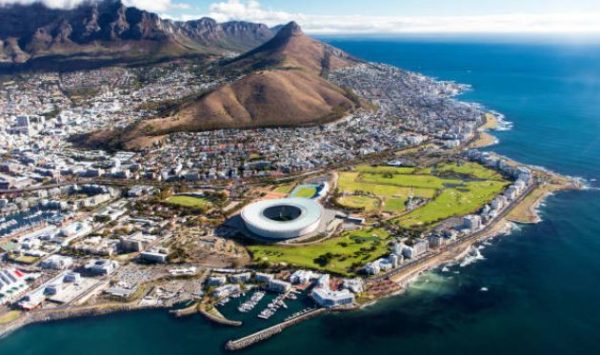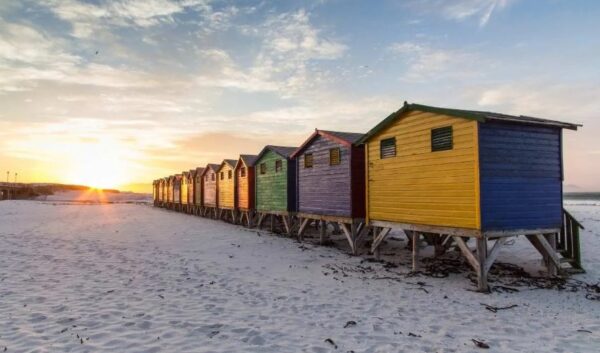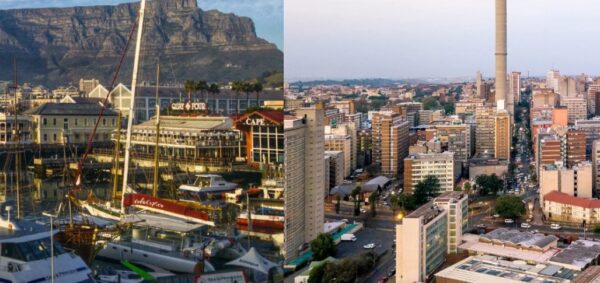Lifestyle
This is why Cape Town is ruling the tourism roost

Safety, proactive cooperation between various role players, accessibility and, again, safety.
According to the research unit TREES (Tourism Research in Economics, Environs and Society) at the North-West University (NWU), these are some of the foremost reasons why travellers flock to tourist destinations, and this is why Cape Town and the Western Cape are currently ruling the country’s tourism roost.
“Cape Town is doing three things right. Firstly, they are proactive in how they manage tourism in the city and province. Cape Town tourism utilises different platforms to reach potential tourists, focuses on building the brand of the city, and promotes the destination as a whole. The success of this approach is showcased by how the private and public sectors are working together to take the tourism sector to the next level. There is also an in-depth focus on creating jobs in the tourism sector,” explains Prof Elmarie Slabbert, director of TREES.
“Secondly, there is the issue of safety. Like any major city, the region has its challenges, but it generally offers a safe environment for tourists. The diverse product offering of Cape Town and the region provides for the needs of both local and international tourists. This includes natural aesthetics, such as the mountains, the seashore and forests, adventure tourism opportunities, as well as the rich cultural heritage with a diverse population and a history that has led to a unique blend of traditions, art, music and cuisine. Then there are wine tourism, historically important destinations and Cape Town International Airport, which means the city is well-connected by air. This accessibility makes it convenient for national and international tourists to visit. In addition, the region has well-developed infrastructure, with a wide range of accommodation options and a host of festivals throughout the year,” says Slabbert.
“Thirdly, Cape Town is an iconic city well known across the globe, therefore there is a national and international presence built up over the years. Awards and accolades such as being voted the ‘Greatest City in the World’ by the British publication The Telegraph for more than seven years contribute to growing this destination.”
According to Prof Peet van der Merwe, sustainable tourism expert at TREES, it will be prudent for other cities and regions to follow the tourism blueprint used by Cape Town and the Western Cape.
“The success that this region currently enjoys again shows that the growth of a tourist destination requires an integrated and concerted effort between the private and public sectors, working together on connectivity, infrastructure, safety and tourism product offerings, utilising scenic beauty and friendly people to attract tourists actively. It is also important to always continue with marketing efforts and to be in the face of the tourists frequently. No single organisation or person should receive praise for this achievement – this is a group effort.”
The team at TREES is unequivocal in their advice on how to give the country’s tourism sector a boost.
“The first and most important aspect is safety. Tourists travel far and spend a significant amount of money when travelling. Therefore, they need some level of reassurance that they will be safe. Then, given the world we live in today and how technology has connected people, connectivity is critical, as this eases the travel process, creates a level of safety and adds value to an informed experience. The road infrastructure in the Western Cape is also very good and contributes to an easy and enjoyable travel experience for tourists,” says Prof Slabbert.
The NWU is committed to helping to achieve the United Nations’ Sustainable Development Goals, and the research being done by TREES to promote the country’s tourism sector – a sector that contributes massively to job creation and various nature conservation initiatives – plays an indispensable role in this regard.
But, warns Prof Van der Merwe, if the country’s tourism sector hopes to further achieve these goals, the relevant role players and authority figures need to get their respective houses in order: “The ability of local governments and tourism authorities is crucial. They must be functional and effective in running their offices. The tourism sector can contribute to the economic growth of this country, and it is an opportunity not to be missed. The key lies in the integrated effort, and Cape Town is setting an example.”










